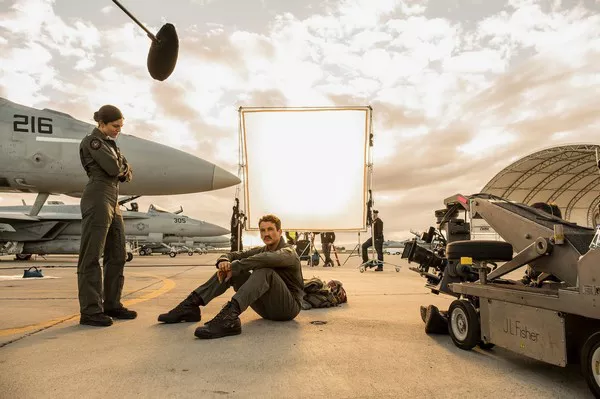This month marks the 10th anniversary of the 2013 film “Rush,” a cinematic portrayal of the dramatic rivalry between Formula One legends James Hunt and Niki Lauda during the 1976 F1 championship. Directed by Ron Howard, the blockbuster starred Daniel Brühl as Niki Lauda and Chris Hemsworth as James Hunt, propelling the movie to both critical acclaim and commercial success. With a production budget of £31 million, “Rush” raked in over £77 million worldwide during its 15-week run.
Critics also showered the film with praise, as evidenced by its impressive 88% rating on Rotten Tomatoes. The consensus among reviewers was that “Rush” was a finely crafted sports drama, complete with exhilarating race sequences and standout performances by Chris Hemsworth and Daniel Brühl.
Upon the film’s release, The Sunday Times Driving invited two individuals intimately connected to the world of motorsport, Niki Lauda and Tony Dron, to share their thoughts on “Rush.” While we are unable to seek their reflections a decade later due to their passing, we present their original comments below.
Tony Dron: “Rush” Moved Me to Tears
In the early 1970s, James Hunt and I forged a deep friendship, traveling together to various racetracks and often finding ourselves in each other’s homes. Memories of those days flooded back as I anticipated the preview of “Rush.” Given the tendency of previous documentaries about Hunt to be misleading, I approached the film’s release with skepticism.
However, as the film began, I was immediately captivated. It looked, sounded, and felt authentic, transporting me back to the early 1970s Formula Three paddock. To my surprise, tears welled up in my eyes and persisted throughout most of the film—an unusual emotional response for me. “Rush” had somehow tapped into the essence of that remarkable period in motorsport, providing a level of honesty that eluded many documentaries.
The film powerfully transported me to the events of 1976, which I vividly recall. It offers not only great entertainment but also a narrative closely aligned with extraordinary real-life events, making it a compelling recommendation for anyone, even those with only a mild interest in motorsport history.
The performances, if anything, are understated, which works to the film’s advantage. Modern audiences might find it difficult to believe just how pompous the real Louis Stanley, head of the Formula One team BRM, was. Similarly, the portrayal of the young Lord Hesketh, who provided Hunt with his F1 opportunity, presents a somewhat tempered version of the actual figure.
While motor racing enthusiasts might nitpick minor details, such as the placement of stickers, I noticed no such discrepancies. In any case, such minutiae are inconsequential. “Rush” is not a documentary, and that is precisely why it succeeds—it captures the essential truth of this remarkable story.
Niki Lauda: “Rush” Brought Memories to Life
Formula One has witnessed many memorable rivalries, from Alain Prost and Ayrton Senna to Nigel Mansell and Nelson Piquet. However, the rivalry between James Hunt and me stands out due to the circumstances surrounding my accident. When I learned that scriptwriter Peter Morgan and director Ron Howard were involved in creating a film about our 1976 season, I believed they were the right team for the job.
The film’s plot remains true to history, recounting the events of the 1976 season. The challenge lay in making it appealing to contemporary audiences, especially those unfamiliar with the era when these events unfolded.
The filmmakers succeeded in creating a movie that resonates with today’s viewers by focusing on the characters: a playboy racing driver and a more serious contender vying for a championship. “Rush” is a character-driven narrative that explores how these two individuals approached a fiercely competitive Formula One season.
During my discussions with Ron Howard, he fired questions at me relentlessly, and the results are evident in the film. The special effects are outstanding, and the accuracy is such that certain scenes, particularly those in the hospital, were difficult for me to watch, given my personal experience.
I have no memory of the Nürburgring accident, so my perception of it comes solely from the film. However, I distinctly recall the rest of the events depicted, as they are based on my firsthand accounts.

























